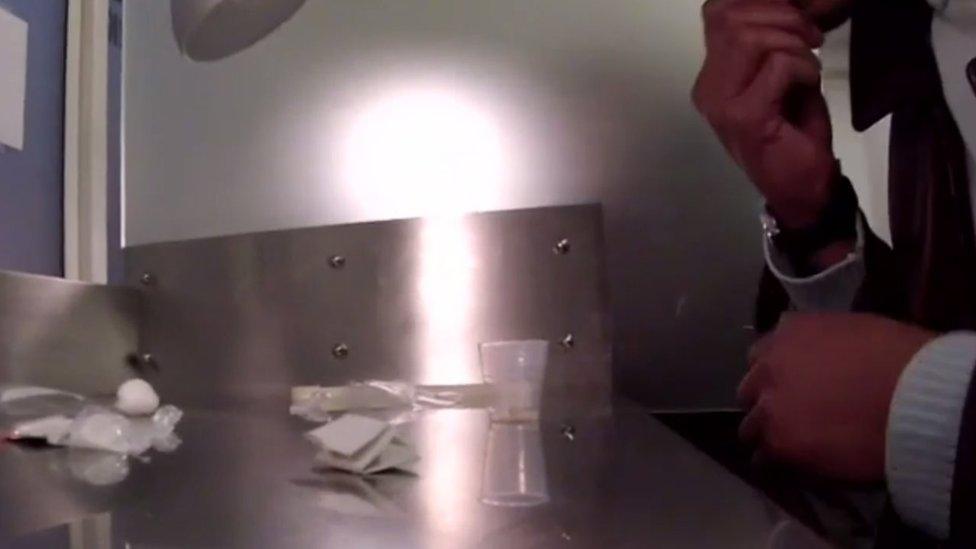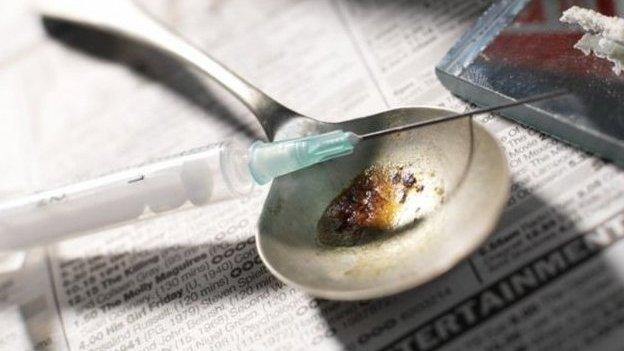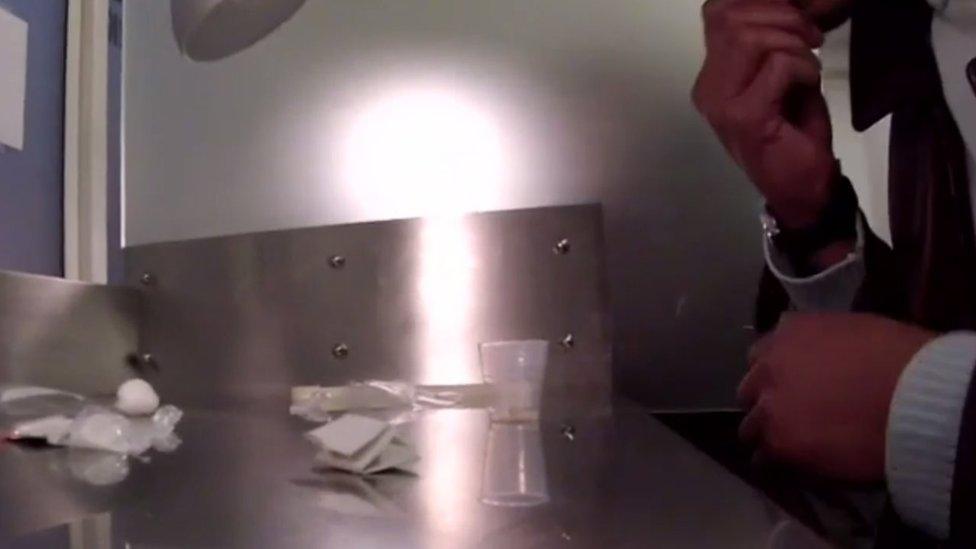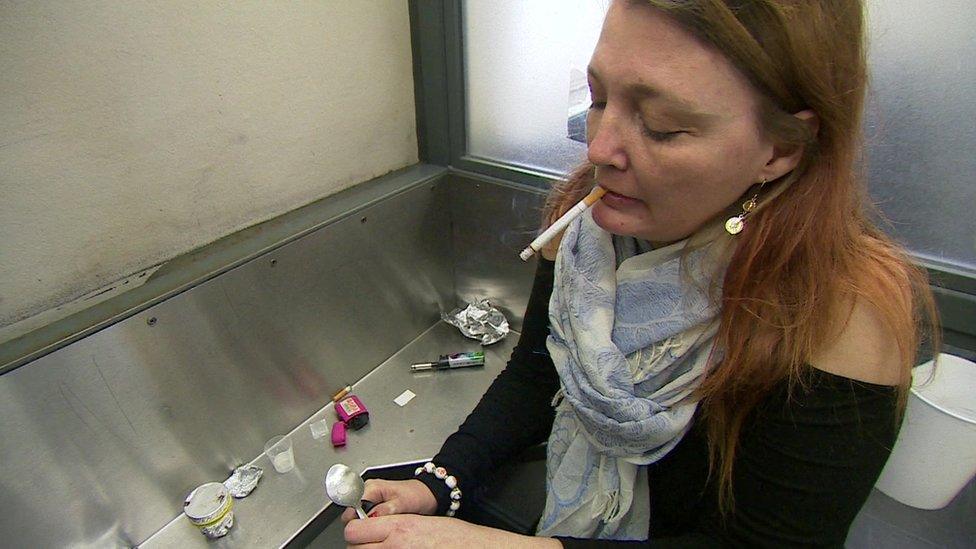Home Office has 'no plans for fix rooms'
- Published

The Home Office said it was aware of the potential health benefits of "fix rooms"
UK Home Office officials have said they cannot support the creation of "fix rooms" for drug addicts in Glasgow.
The department's drugs legislation team set out its reasons in a letter to Glasgow City Council, which has proposed the facility.
But the Home Office said it was aware of the public health benefits of drug consumption rooms.
Councillors say they could help curb the increase in street injecting and HIV infections among users.
No such rooms exist in the UK and the Lord Advocate has said they would require the UK government to amend the Misuse of Drugs Act.
The letter to Glasgow City Council pointed to evidence that showed fix rooms could reduce overdose fatalities and bring high-risk users into contact with medical support.
Problem drug users
But officials maintained that the Home Office had no plans to introduce drug consumption rooms, with concerns over law enforcement, ethical quandaries for medical professionals and the risk that users would travel long distances to use the room.
Glasgow City Council said the UK government's acceptance of the public health benefits showed a significant change in attitude.
The city has an estimated 13,600 problem drug users and has seen a growing number of addicts diagnosed with HIV.
Health officials have put the cost to NHS Greater Glasgow and Clyde at more than £29m.
The city's Health and Social Care Partnership developed and agreed proposals for the facility in 2016.
Evidence 'accepted'
Its aim would be to cut public injecting, reduce harm for users and communities, and prevent increases in drug-related infections.
The motion was proposed by city convener for health and social care integration, Mhairi Hunter.
Ms Hunter said the letter was a sign the Home Office was taking on board the evidence that drug consumption rooms (DCR) worked.
"The letter from the Home Office shows they are listening to what is being said about a safer consumption room in Glasgow," the councillor said.
"Within the Home Office letter there is a far greater acknowledgement of the evidence in favour of safer consumption rooms than we have ever seen before.
"It shows that continuing to highlight the benefits of DCRs is having an impact on thinking in the Home Office."
Ms Hunter said the Home Officer had "essentially" accepted the arguments over the potential benefits, but added she understood the "sticking points".
"I see a clear basis for on-going dialogue with the Home Office about the proposal for safer drug consumption facility in Glasgow," she said.
The letter also indicated the Home Office would be supportive of a heroin-assisted treatment programme being established in Glasgow.
In a heroin-assisted treatment programme, the drug is prescribed to some users - typically for use under medical supervision.
- Published5 April 2018

- Published12 December 2017

- Published10 November 2017

- Published10 June 2017

- Published9 January 2017
